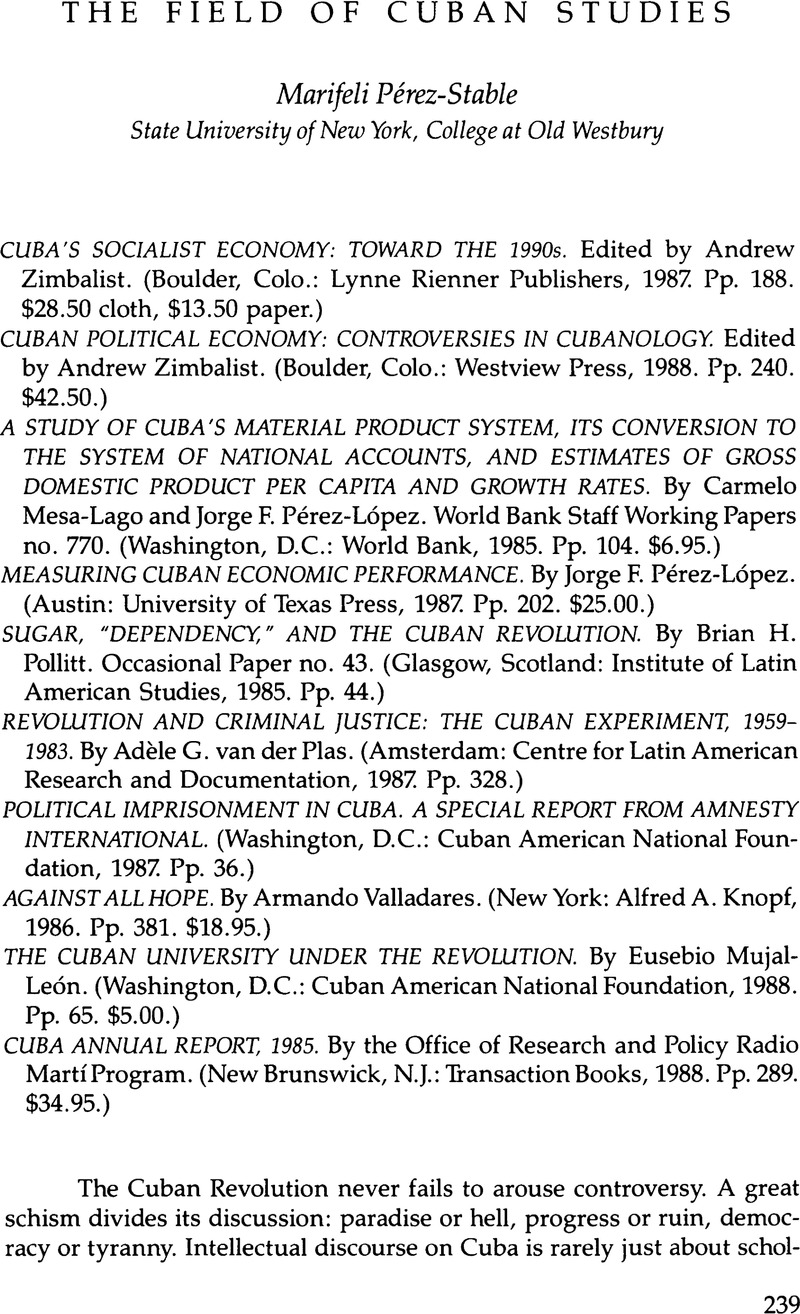Article contents
The Field of Cuban Studies
Review products
Published online by Cambridge University Press: 12 October 2022
Abstract

- Type
- Review Essays
- Information
- Copyright
- Copyright © 1991 by the University of Texas Press
References
Notes
1. The New York Times, 18 Dec. 1988, p. 12; and Institute for Policy Studies, “Cuban Prisons: A Preliminary Report,” Social Justice 15 (Summer 1988):55–62.
2. In “Sovietology as a Vocation, ” Stephen F. Cohen traces the development of Soviet studies in response to cold war imperatives. His article succeeds where Rodriguez's fails in providing insights useful to understanding the field of Cuban studies. See Cohen, Rethinking the Soviet Experience (New York: Oxford University Press, 1985), 3–37.
3. Alberto Mora, “On Certain Problems of Building Socialism,” in Man and Socialism in Cuba, edited by Bertram Silverman (New York: Atheneum, 1971), 334.
4. Programa del Partido Comunista de Cuba (Havana: Editora Política, 1986); and Plan de acción contra las irregularidades administrativas y los errores y debilidades del sistema de dirección de la economía (Havana: n.p., 1986).
5. The works under review essentially represent the positions debated by these four authors in Comparative Economic Studies. See Claes Brundenius and Andrew Zimbalist, “Recent Studies on Cuban Economic Growth: A Review,” Comparative Economic Studies 27, no. 1 (Spring 1985):22–46; and in the same issue, Carmelo Mesa-Lago and Jorge F. Pérez-López, “Imbroglios on the Cuban Economy: A Reply to Brundenius and Zimbalist,” 47–83. See also Brundenius and Zimbalist, “Cuban Economic Growth One More Time: A Response to ‘Imbroglios,‘” Comparative Economic Studies 27, no. 3 (Fall 1985):115–31; Mesa-Lago and Pérez-López, “The Endless Cuban Economy Saga: A Terminal Rebuttal,” Comparative Economic Studies 27, no. 4 (Winter 1985):67–82; and in the same issue, Brundenius and Zimbalist, “Cuban Growth: A Final Word,” 83–84.
6. Earlier works by Mesa-Lago and Brundenius have evaluated Cuban economic performance within broader contexts from contending perspectives. See Carmelo Mesa-Lago, The Economy of Socialist Cuba (Albuquerque: University of New Mexico Press, 1981); and Claes Brundenius, Revolutionary Cuba: The Challenge of Economic Growth with Equity (Boulder, Colo.: Westview, 1984).
- 1
- Cited by




